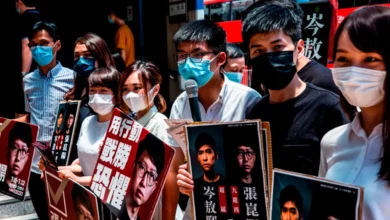Twenty-seven Egyptian human rights organizations proposed on Saturday the establishment of a Constitutional Council to protect Egypt’s emerging democracy amid concerns the country’s strong Islamist forces could undermine the democratic transition.
In a document entitled the Basic Constitutional Provisions, the organizations said that a “Constitutional Council shall be established to oversee the protection of the constitution and the democratic system,” adding that the council would include the chairs of the high courts, led by the president of the Supreme Judicial Council.
Unlike other constitutional proposals, the six-article document avoided identifying a special role for Egypt’s ruling Supreme Council of the Armed Forces (SCAF) in protecting the secular nature of the state.
Last month, presidential hopeful Hesham el-Bastawisi proposed a set of “supra-constitutional” principles to be included in the permanent constitution granting the military powers to protect the democratic system, and ensuring the independence of its branches.
Bastawisis’ document echoed another concern of many secular forces under the umbrella of the so-called National Council, a loose coalition of secular groups, which came up with a draft constitution that bestowed on the armed forces a special status.
“This is a purely democratic document that aims to preserve human rights in Egypt,” said Bahey el-Din Hassan of the Cairo Institute for Human Rights Studies, one of the signatories of the new document. “The SCAF clearly said that it would only hand power over to civilians, so why should we grant them any special protective role?”
Simulating the Turkish experience, where the military claims to protect the secular nature of the state, has been one of the propositions put forward to challenge any Islamist’s control over Egypt’s next parliament. The Muslim Brotherhood, Egypt’s best organized group, has always said it respects democracy, but some prominent Salafi preachers have said democracy bears anti-Islamic features.




